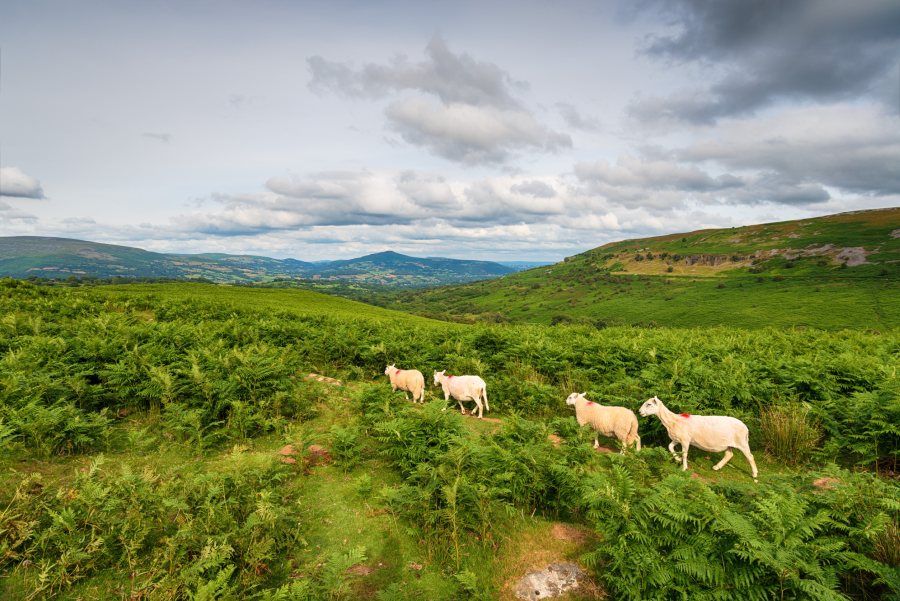Scottish farm leaders call for 'urgent approval' of bracken herbicide

Scottish farm leaders have called for the 'urgent approval' of the herbicide Asulox for use to control bracken this year due to the lack of alternatives.
NFU Scotland, Scottish Land & Estates and Bracken Control Group have urged the Scottish government to reauthorise Asulox (asulam) to control bracken.
An aggressive and invasive weed, there are reports that it is growing frantically throughout the hillsides of Scotland.
Where bracken grows, the land is unproductive, and it is also a risk to livestock health due to the abundance of ticks.
Currently, Asulox is not registered for use in the UK. However, an emergency authorisation of the herbicide was issued last year.
To counter the threats posed by bracken, a number of different control techniques are employed by land managers and specialist contractors.
Asulox is just one of these options, but for Scotland’s farmers and landowners, aerial application is often the only option due to the scale of the area covered by bracken.
In a joint statement, the industry bodies said: “Our organisations believe that in the longer-term, a more consistent and strategic approach should be taken for the control of bracken.
"This includes the development of an improved stewardship approach that introduces effective controls to manage and monitor the use of the various bracken control techniques, including herbicides."
Control of bracken is a multi-stage process and effective control requires a repeat treatment for up to ten years.
Failure to carry out repeat treatments can lead to bracken recovering quickly and the cost and effort associated with the primary treatment being wasted.
A greater emphasis would be placed on integrated pest management, the groups said, with a view to reducing the use of herbicide except in cases where other control options are not possible.
They added: “We would also like to express our disappointment that bracken control was removed from this year’s agri-environment scheme.
"This has not only increased the risks of bracken as set out above, but also reverses the benefits of public money already spent. We urge government to restore this option in future rounds of funding."
Brian Walker, of Carloonan Farm in Inveraray, Argyll, recently accused the Scottish government of "dragging its heels" on the issue of reauthorisation.
The tenant farmer said he had never before seen more cows coming off the hill this spring covered in ticks.
“The warm temperatures in the dead bracken over the winter months makes it the perfect place for them to survive and breed over winter," he said.
He said this was having a devastating impact on his livestock, adding: "Once an animal becomes a host for ticks, we have to use a chemical – like spot-on treatments used on cats and dogs – to get rid of them.
"If we don’t do this, it could lead to the animals getting seriously ill - redwater disease in cattle and louping ill in sheep are nasty diseases."
Scottish Conservative shadow rural affairs secretary, Rachael Hamilton MSP has also called on the SNP-led government to grant authorisation.
"There is no time to wait for the SNP-Green government in urgently granting the emergency use of Asulox," Ms Hamilton said.
"I have pressed Humza Yousaf on the matter at the last two First Minister’s Questions, but he's either passed the buck to the Health and Safety Executive or given no answer at all.
"Our farmers and rural communities are crying out for a decision as they know asulox is the most effective method of controlling bracken."








